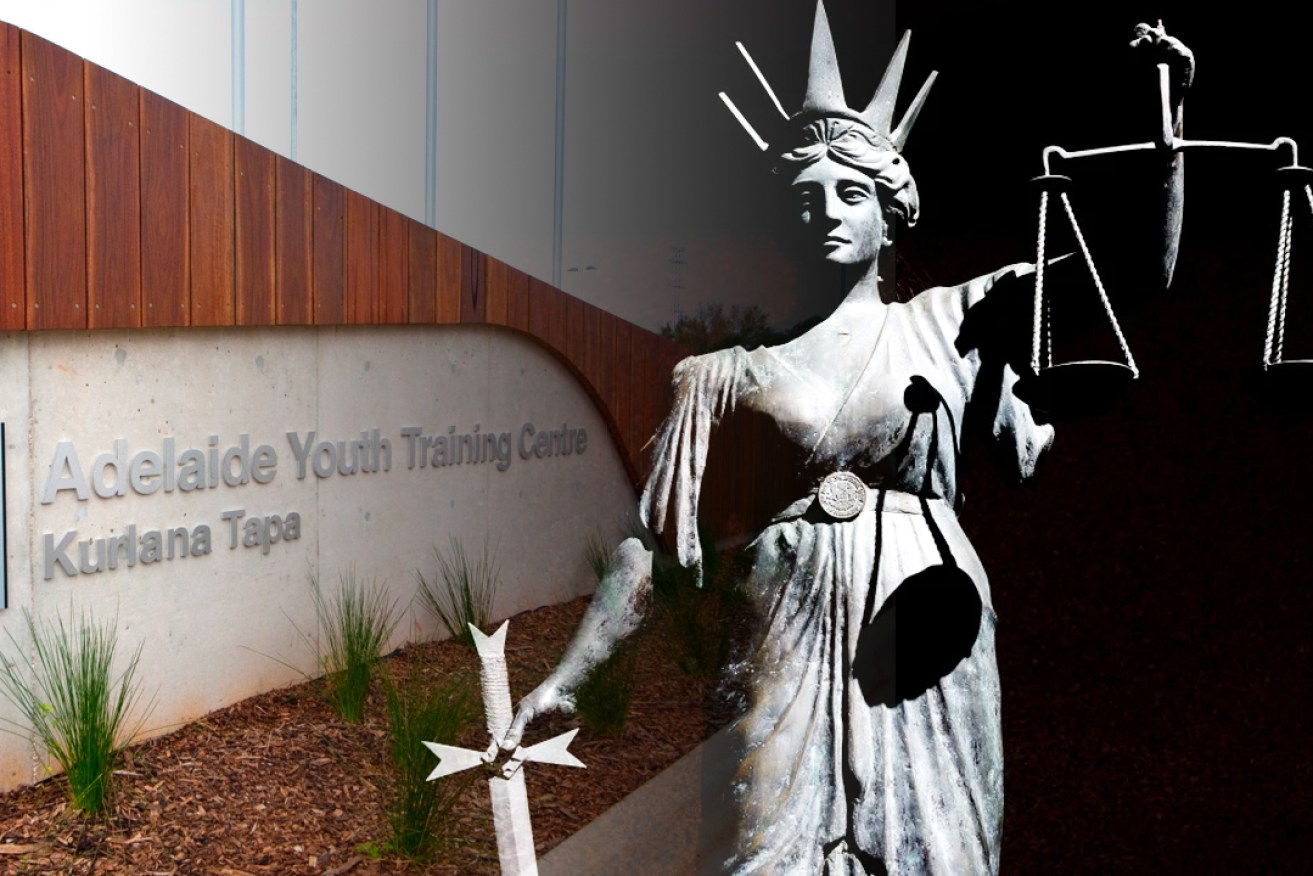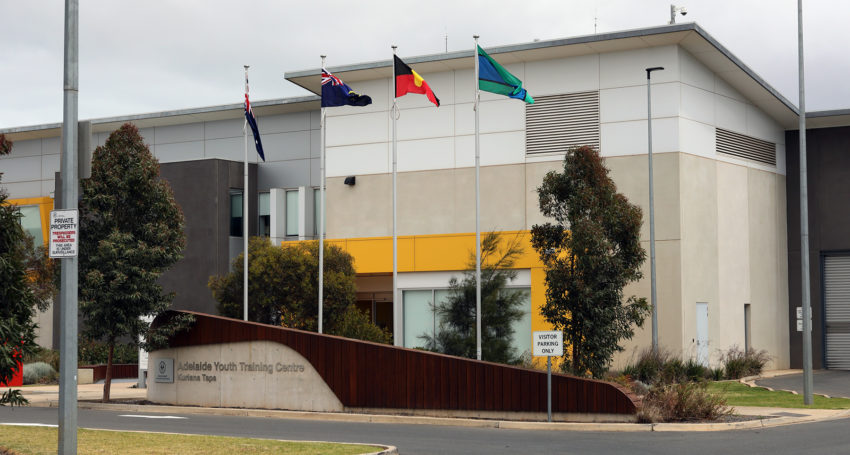Call to ditch ‘unconscionable’ SA youth drug laws
Laws allowing South Australian authorities to detain drug-dependent children for mandatory treatment should be repealed, according to the scheme’s watchdog, who says she is “bewildered by the capacity of our state’s services system to disregard and be indifferent to human rights”.


The Adelaide Youth Training Centre, Kurlana Tapa, in Cavan. Photo: Tony Lewis/InDaily. Graphic design: Tom Aldahn/InDaily
In a scathing annual report tabled in parliament on Tuesday, Youth Treatment Order (YTO) visitor Shona Reid said it was “unconscionable to allow this scheme to continue” and that it “offends core South Australian and international human rights guarantees”.
The YTO scheme, a Marshall Government election promise, allows the Youth Court to request assessments of detained children to determine if they are drug-dependent, refusing to seek voluntary treatment and posing a danger to themselves or others.
The court can order those who meet the criteria to undergo treatment while detained for up to 12 months.
Legislation underpinning the program passed parliament with Labor’s support in 2019 and started operating in November 2021.
The program only currently applies to children detained and convicted at the Kurlana Tapa Youth Justice Centre at Cavan, with any extension of the scheme subject to review.
To date, the Youth Court has not made any mandatory treatment orders, according to a government spokesperson, and only one child has been subject to an assessment application.
But Reid raised concerns that government agencies did not adequality prepare for the legislation’s commencement.
She said despite a four-year lead up to the new scheme, there was a “notable absence of frameworks, procedures and practice guidance to appropriately and safely implement the YTO process”.
“As I look back over the last 12 months and the operations of my Youth Treatment Orders mandate, I can’t help but be bewildered by the capacity of our state’s services system to disregard and be indifferent to human rights for the most vulnerable in our society,” she said.
“Youth Treatment Order (YTO) processes in 2022-23 has laid to bare the lack of preparedness and often futile nature of South Australia’s ‘welfare’ system when it comes to the most extremely vulnerable children in our state.
“It is fundamental to my role that I comment on the systemic capacity of the South Australian Government to operationalise and oversee this legislation.
“A piece of legislation which, by its very existence, offends international human rights conventions, by forcing drug assessment and treatment on unwilling children and young people while in detention.”
Reid, who is also the Youth Training Centre Visitor, said Adelaide’s youth detention facility is “not designed or operationalised to provide safe and effective, trauma informed care in a properly therapeutic environment”.

The Kurlana Tapa youth detention centre at Cavan. Photo: Tony Lewis/InDaily
“It remains unconscionable that the Scheme is being trialled on incarcerated children and young people,” the report states.
“The Youth Justice Centre is not mandated, equipped, or delegated with a capacity to function to a minimal acceptable standard as a withdrawal, detoxification or treatment facility for children and adolescents.”
Reid reviewed documents, spoke with stakeholders and considered the views and experiences of children to compile the review of the YTO scheme’s operations in 2022-23.
The report says she had “highly concerning” conversations with key stakeholders about the YTO scheme being potentially used as a “safe keeping” measure – rather than a treatment response – for young people “who engage in risk-taking behaviours that are not drug related”.
This is in the context of the Department for Child Protection, Department of Human Services or SA Police being concerned that they may not be able to keep the person safe, the report states.
“This is inconsistent with the purpose of the YTO scheme, which is strictly limited to drug dependency and treatment, and does not authorise a Court to deprive a young person of their liberty due to other behaviours that may be a risk to their personal safety,” Reid said.
“The YTO Visitor assert that using the YTO Scheme as a safe keeping intervention… is highly problematic.
“Doing so can lead to a young person being placed in the Youth Justice Centre when they otherwise would not be, exposing them to associated risks and trauma impacts.”
Reid made three recommendations to the government. The first calls for repealing the legislation which enables the scheme while the second calls for the development of adequality-resourced and evidence-based drug and alcohol initiatives that are “trauma responsive [and] child-centred”.
Reid also recommended that the Youth Justice Centre not be used as a secure housing facility for children and young people who primarily have therapeutic needs.
A government spokesperson said it would give “careful consideration” to Reid’s views, noting a review of the scheme was due to begin in 2024.
“The legislation which establishes the scheme requires a review to be undertaken after November 2024, the third anniversary of the scheme commencing,” they said.
“The Government will give careful consideration to the Visitor’s views, particularly in the context of this review.”
Reid’s report into the youth drug scheme comes amid broader concerns about the operations of the youth detention centre in Cavan.
In her capacity as Youth Training Centre Visitor, Reid last year revealed that a “staffing crisis” at the facility had led to children being locked alone in their rooms for extended periods, eating fast food or microwaved dinners on the floor or on their beds.
There were 336 individuals detained at Kurlana Tapa in 2022-23, with 32.3 young people detained there on an average day, according to Reid’s latest report.
If you or someone you know needs help with alcohol or other drugs go to knowyouroptions.sa.gov.au.
You can also contact the Alcohol and Drug Information Service on 1300 13 13 40.




